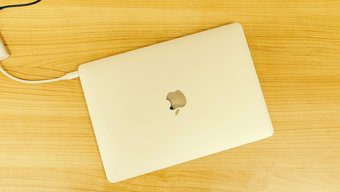The Health app has evolved significantly since it first launched in 2014. Beyond monitoring your daily steps, you can now keep an eye on how you walk and even add documents to the interface – plus much more. In this article, we’ll identify the five best Health app features you should use on your iPhone. You’ll also discover walkthroughs so you can access each of them yourself.
Walking Steadiness
As part of its iOS 15 update in fall 2021, Apple released a Walking Steadiness – a new feature that monitors how you walk. By looking at these patterns, your device can determine whether you’re at an increased risk of falling. You can access Walking Steadiness by going into the Mobility section of your app. To get there: Step 1: Open the Health app and tap on the Browse tab. Step 2: Scroll down to Mobility and click on this section. Step 3: Look for Walking Steadiness and tap on this tab. At the top of the next window, you’ll see your level of walking steadiness. If you want to set up notifications, scroll down to Walking Steadiness Notifications and select Set Up. After that, follow these steps. Step 1: Click on Next. Step 2: In the next window, confirm your age, weight, and height before selecting Next again. Step 3: Read the information in the Walking Steadiness Levels tab before tapping the blue Next button. Step 4: Confirm that you’d like to switch on notifications by pressing Turn On. Step 5: Select Done on the next page.
Walking Asymmetry
In addition to Walking Steadiness, your iPhone lets you monitor how you walk through Walking Asymmetry. Through this, you can identify if you’ve got underlying conditions – such as injury or illness – that impair your ability to walk correctly. Like the feature in the previous section, you can access Walking Asymmetry in the Mobility section of your app. To do so: Step 1: Tap the Browse button at the bottom of your screen. Step 2: Click on Mobility. Step 3: Scroll down to Walking Asymmetry. This subsection shows your averages for the day, week, month, six-month period, and year. Change between these by tapping the grey banner near the top of your screen. If you’ve got a lower walking asymmetry percentage, it means that your walking pattern is healthier. On the flip side, it’s worth seeking medical advice if the number on your screen reads higher.
Health Trends
Since every day is different, it’s important to track your health progress over an extended period. Fortunately, you can do this with the Trends feature. In this section of your iPhone’s Health app, you can find your average daily steps, stair flights climbed, and walking and running distances. To access Trends: Step 1: Tap on the Summary tab at the bottom of your Health app. Step 2: Scroll down to Trends and click on View Health Trends. Step 3: Tap on each section that you want to view. Like your average walking asymmetry, you can look at how you’ve done based on the day, week, month, and so on.
Sharing
Often, it’s a good idea to let others know how you’re doing health-wise. And in some cases, you might want to compare and contrast your results with your friends and family. With the Health app, you can share how you’re doing in another iPhone user’s app. You can do this via Health Sharing. After you set it up, the other user will see a summary of your topics. Moreover, you can also let them receive notifications. To set up Health Sharing: Step 1: Select the Sharing tab on the bottom of your screen. Step 2: Click on Share with Someone. Step 3: Enter the name of the person you’d like to share your information with. Step 4: On the next page, choose whether you want to share a selection of suggested topics or pick them manually. Step 5: Click on Next after you’ve set everything up. You’ll need to go through three steps, each of which lets you choose different app features. Step 6: After setting everything up in each subsection, hit Share.
Sleep
Having a sufficient amount of sleep is crucial to increasing your productivity. But more importantly, you also need it to keep your mental and physical wellbeing in check. When using the Health app, you can create a schedule and customize your phone to ensure you get enough sleep. To do this: Step 1: Go to the Browse tab and select Sleep. Step 2: In the Set Up Sleep window, click on the Get Started button. Step 3: Select Next on the following page. Step 4: Set your sleep goal and press Next. After setting your sleep goal, you can choose the days you want this schedule to work on. If you scroll down, you can choose to set an alarm. After customizing these, hit Add. Step 5: Press Next. On the following screen, you can set up the Sleep Focus mode. Hit Enable Sleep Screen if you want to do this. You’ll also need to do this for setting Wind Down and Shortcuts on the next two screens. Step 6: Hit Done after completing all of these steps.
Look After Yourself With Your iPhone
The Health app is often overlooked but can help you keep track of your wellbeing if you use it wisely. Having read this article, you should have enough to get you started with improving your quality of life. You can enhance your experience further by integrating third-party apps, along with using the various other features within Health on your iPhone. The above article may contain affiliate links which help support Guiding Tech. However, it does not affect our editorial integrity. The content remains unbiased and authentic.
































